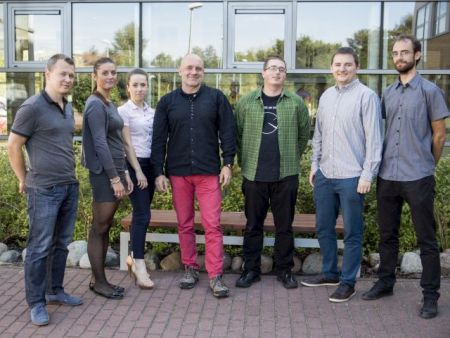Head of Department
Employees
Prof. UAM dr hab. Artur Bajerski
Research topics in the Department of Human Spatial Behaviour
The Department staff focus on the development and perfection of theoretical reflections and analyses in the field of behavioural geography. Its theoretical-methodological orientation involves analysis determined by three ‘poles’: social behaviour – environment – space.
Theoretical issues and research problems have a micro-scale and a meso-structural aspect. In micro-scale studies, the behavioural approach concentrates on the registration and explanation of the behaviour of individuals and smaller social structures as basic for the organisation of higher-level structures (systems). This type of research is important because of the original, not to say constitutive, nature of many behaviour patterns at this scale.
In its meso-structural aspect, the behavioural approach allows a conceptual and an empirical explanation of phenomena embedded in a territorial context, taking into account their wider cultural, political and economic determinants.
In practical terms, the results of empirical studies can have application in physical planning, the management of the public domain, and the organisation of and involvement in broadly understood tourist activity, by combining in an interdisciplinary way the body of knowledge from geography, sociology, psychology, and ethnology.
An important stream in the activity of the Department is the use and development of the latest geoinformation techniques in analyses of social behaviour patterns, e.g. in towns, in areas exposed to the risk of natural disasters, or in people’s tourist activity.
The questions regarded as basic in conceptual reflections and studies include:
- territoriality and the delimitation of borders on the basis of behaviour patterns
- identity and membership in spatial terms
- social motives and preferences
- social organisation in space, including the operation of systems, the development of social conflicts and tensions, and social participation
- individual, group and collective behaviour patterns in private, neighbourhood and public space
- analysis of behaviour patterns in cyberspace and the GeoNet
- studies of social behaviour in terms of the operation of institutions organising people’s lives, particularly in education at the primary and secondary levels: educational policies of communes, the spatial organisation of the school network, school districts, the choice of a school, determinants of the results of school exams, problems of school closure, and financing of education; in higher-level education: migrations of students and scholars, factors of the location of higher schools, and their links in the field of education and research
- perception and ideas of the environment
- intercultural relations in terms of migrations and journeys
- motives for taking up, involvement in and effects of tourist and travelling activity
- methods of study of social behaviour patterns in space, including perceptual and imagination-related analyses
- use of GIS methods in analyses of social behaviour patterns in real and virtual space
- social behaviour patterns in areas exposed to the risk of natural disasters.
